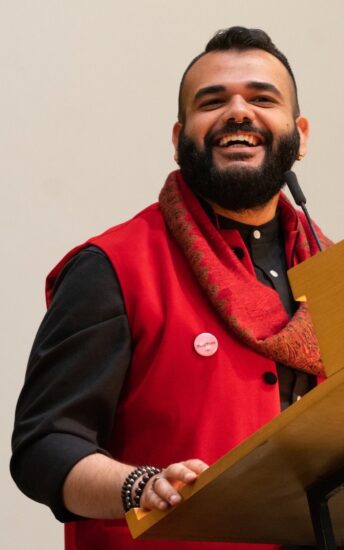Entrepreneurial Ministry: An Emerging Model of Spiritual Leadership

Many religious professionals are turning towards entrepreneurial ministry to activate and sustain their vocations amidst the decline of mainline religious institutions. Others feel a strong call to spiritual leadership but sense layers of misalignment with established spiritual communities. This online synchronous course is intended for those who wish to explore entrepreneurial ministry as an emerging model for engaging in spiritual leadership.
During lectures and discussions, students will explore the historical and thea/ological foundations of entrepreneurial ministry as they reflect on their calling, offering, brand, and niche. They will also define their personal and professional goals; learn basic marketing, sales, and contracting; and co-organize an entrepreneurial network of support and accountability. Throughout the course, students will be encouraged to explore and confront their professional anxieties, self-limiting beliefs, and unconscious financial attitudes.
In their final projects, students may choose to write a business plan or experiment with launching their ministry to receive constructive feedback from their peers. Alternatively, students can choose to write an academic paper on their sense of call to entrepreneurial ministry, integrating course learnings with their own research. Finally, students are welcome to schedule an optional 60-minute coaching session as part of the course with the instructor, an ICF-credentialed clergy coach.
Evaluation based on weekly participation, reflection papers, and a final project.
MDiv, MASC, and Certificate students.
UUA Ministerial Fellowship Competencies: 5) Administration, 6) Serves the larger UU Faith, and 7) Leads the faith into the future.
Starr King Thresholds: 4) Life in Religious Community and Interfaith Engagement, 5) Spiritual Practice and the Care of Souls, 6) Thea/ology in Culture and Context, and 7) Educating for Wholeness and Liberation.
Enrollment max: 20. Auditors excluded.
